Constituent Assembly of India Debates
Constituent Assembly of India Debates
Constituent Assembly of India Debates
Create successful ePaper yourself
Turn your PDF publications into a flip-book with our unique Google optimized e-Paper software.
SIR,<br />
On the 28th April 1947, the Hon'ble Sir N. Gopalaswamy Ayyangar on behalf <strong>of</strong> our<br />
Committee, presented our first report to the <strong>Constituent</strong> <strong>Assembly</strong>. In doing so, he<br />
referred to the changes that were developing in the political situation and were likely<br />
to affect the nature and scope <strong>of</strong> the Committee's recommedations, and sought<br />
permission to submit a supplementary report at a later date. The House was pleased<br />
to grant us leave to do so.<br />
2. Momentous changes have since occurred. Some parts <strong>of</strong> the country are<br />
seceding to form a separate State, and the plan put forward in the Statement <strong>of</strong> the<br />
16th May on the basis <strong>of</strong> which the Committee was working is, in many essentials, no<br />
longer operative. In particular we are not now bound by the limitations on the scope <strong>of</strong><br />
Union Powers. The first point accordingly that we considered was whether, in the<br />
changed circumstances, the scope <strong>of</strong> these powers should not be widened. We had no<br />
difficulty in coming to a conclusion on this point. The severe limitation on the scope <strong>of</strong><br />
central authority in the Cabinet mission's plan was a compromise accepted by the<br />
<strong>Assembly</strong> much, we think, against its judgement <strong>of</strong> the administrative needs <strong>of</strong> the<br />
country, in order to accommodate the Muslim League. Now that partition is a settled<br />
fact, we are unanimously <strong>of</strong> the view that it would be injurious to the interests <strong>of</strong> the<br />
country to provide for a weak central authority which would be incapable <strong>of</strong> ensuring<br />
peace, <strong>of</strong> coordinating vital matters <strong>of</strong> common concern and <strong>of</strong> speaking effectively for<br />
the whole country in the international sphere. At the same time, we are quite clear in<br />
our minds that there are many matters in which authority must lie solely with the<br />
Units and that to frame a constitution on the basis <strong>of</strong> a unitary State would be a<br />
retrograde step, both politically and administratively. We have accordingly come to the<br />
conclusion--a conclusion which was also reached by the Union Constitution<br />
Committee--that the soundest framework for our constitution is a federation, with a<br />
strong Centre. In the matter <strong>of</strong> distributing powers between the Centre and the Units,<br />
we think that the most satisfactory arrangement is to draw up three exhaustive lists<br />
on the lines followed in the Government <strong>of</strong> <strong>India</strong> Act <strong>of</strong> 1935, viz., the federal, the<br />
provincial and the concurrent. We have prepared three such lists accordingly and<br />
these are shown in the Appendix.<br />
We think that residuary powers should remain with the Centre in view however <strong>of</strong><br />
the exhaustive nature <strong>of</strong> the three lists draw up by us, the residuary subjects could<br />
only relate to matters which, while they may claim recognition in the future, are not at<br />
present indentinable and cannot therefore be included now in the lists.<br />
3. It is necessary to indicate the position <strong>of</strong> lndian States in the scheme proposed<br />
by us. The States which have joined the <strong>Constituent</strong> <strong>Assembly</strong> have done so on the<br />
basis <strong>of</strong> the 16th May Statement. Some <strong>of</strong> them have expressed themselves as willing<br />
to cede wider powers to the Centre than contemplated in that Statement. But we<br />
consider it necessary to point out that the application to States in general <strong>of</strong> the<br />
federal list <strong>of</strong> subjects, in so far as it goes beyond the 16th May Statement, should be<br />
with their consent. It follows from this that in their case residuary powers would vest<br />
with them unless they consent to their vesting in the Centre.<br />
4. To enable States and, if they so think fit, Provinces also, to cede wider powers<br />
to the Centre, we recommend that the constitution should empower the Federal<br />
Government to exercise authority within the Federation on matters referred to them<br />
by one or more Units, it being understood that the law would extend only to the Units


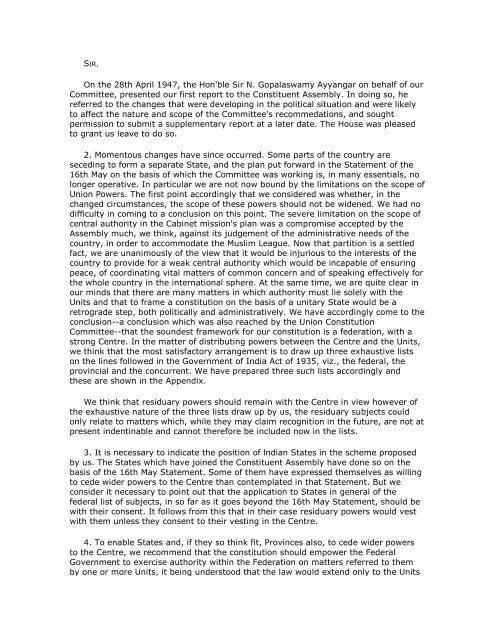
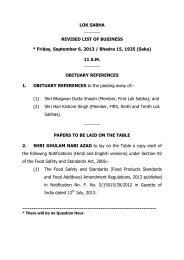
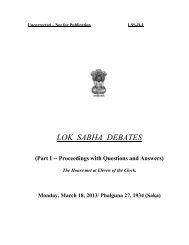
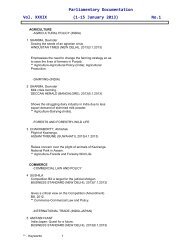
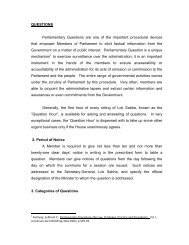
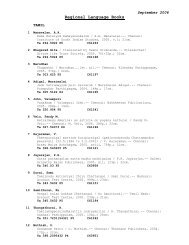
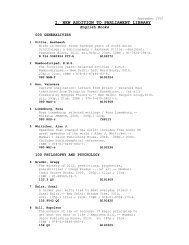
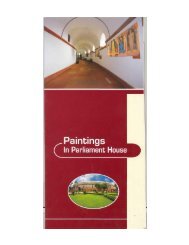
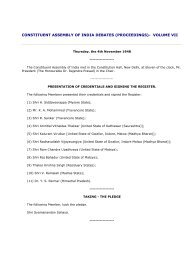
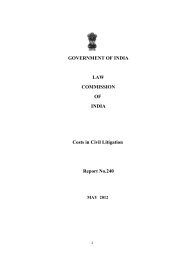
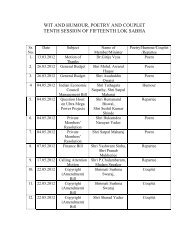
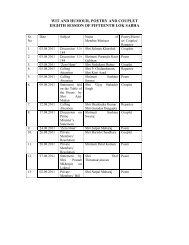

![gÉÉŌ A.]ÉŌ. xÉÉxÉÉ](https://img.yumpu.com/8015720/1/190x245/geeo-aeo-xeexee.jpg?quality=85)
